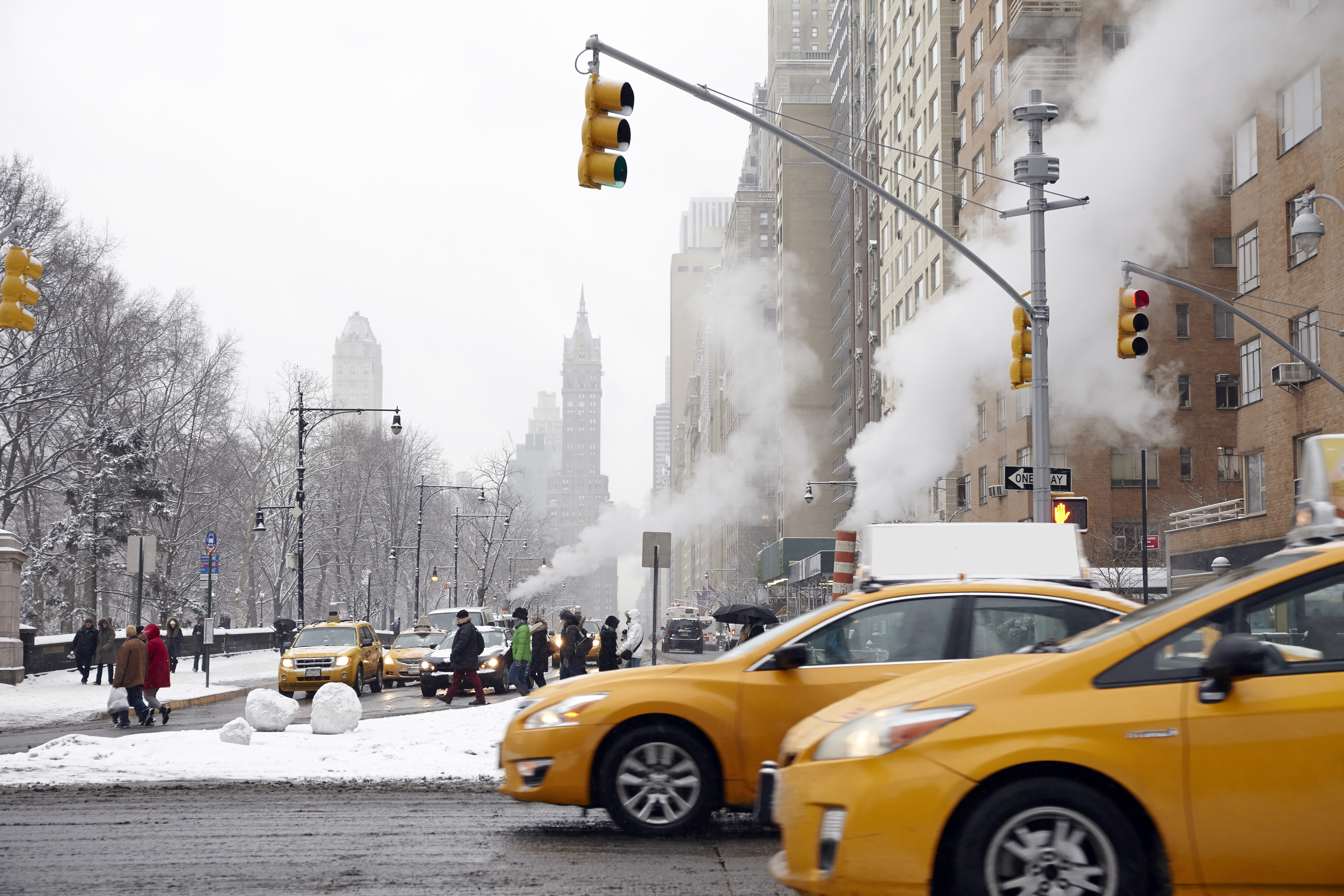What to Know
- Monday marks a record-setting day for New York City -- the longest ever Central Park has gone without recording measurable snowfall in winter (previous record was Jan. 29, set in 1973)
- Snow stays out of the forecast, but cold moves in overnight, chilling us down into the 30s and keeping us there through Wednesday, but the reprieve won't be long
- Friday's highs peak for just a day then tumble ... and tumble, and tumble. Expect single-digit lows in NYC Saturday, with dangerous sub-zero wind chills across the metro area; temps rebound Sunday
New York City has once again outdone itself.
In a city driven to continuously raise -- or, more accurately, in this case (and maybe other cases) lower -- the proverbial bar, even nothing can be special, especially when it's the first-ever nothing of its kind. That's where we find ourselves.
For the first time ever (well, since the record-keeping began in 1869), Central Park has not seen measurable snow prior to Jan. 30 of a winter season. The previous latest-ever first measurable snowfall date in the iconic space was Jan. 29, which happened during the winter of 1972-73, according to National Weather Service records.
Get Tri-state area news delivered to your inbox. Sign up for NBC New York's News Headlines newsletter.
There have been some flurries throughout the autumn and early winter, but reaching Jan. 30 without any accumulation of snow on the ground sets a new record.
In a winter that has seen parts of the country walloped by historic snowstorms, including other areas of the Empire State, NYC has been notably bereft of the white stuff. Bereft might be too light a term, considering we haven't seen any measurable snow at all thus far -- and it's about to be February. What else can we break?
Well, there's no sign of any decent snow chance for New York City in the immediate forecast, so our next records to watch include:
Longest snowless streak ever: As of Monday, we're six days away from eclipsing the No. 1 spot. If we make it to 333 days with no measurable NYC snow that's the longest streak ever -- and it may extend beyond that, too
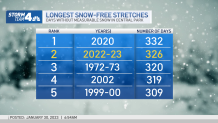
Warmest January ever: As of Sunday, we've got the second-warmest January on record. We're just three tens of a degree from tying it, so we'll see what happens over the next two days
See more random least snowy NYC winter facts here. Obtenga todos los detalles más recientes en español aquí.
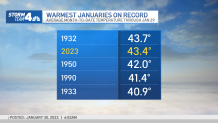
Snow stays out of the 10-day forecast, but the cold moves in overnight, chilling us down into the 30s through Wednesday. Friday's highs peak for the entire day just after midnight, then tumble ... and tumble, and tumble more. Expect at least single-digit lows in the city on Saturday with dangerous sub-zero wind chills across the entire region.
It'll feel like negative 15 degrees in parts of the city and worse north and west. Those temps aren't to be taken lightly.
The temperature plunge, mercifully, is brief, with the mercury expected to rebound back above 40 Sunday and stay that way through at least the early part of next week.
Stay with Storm Team 4 for all the latest updates.
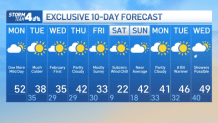
First Central Park Snow Averages
Yes, we've technically seen snowflakes in Central Park this season, but trace amounts of snow mixed in with rain don't count for weather data recording purposes.
Last winter, Central Park recorded its first measurable snowfall on Dec. 23, although it was only 0.2 inches (so, you see, "trace" amounts are really nothing at all). The average first measurable snowfall in the city is Dec. 7, so we're already a month behind the average.
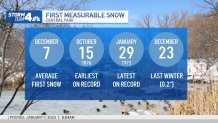
Yes, we've technically seen snowflakes this season, but trace amounts of snow mixed in with rain don't count for weather data recording purposes. (That's not us, that's the National Weather Service.)
When looking at snowfall totals and temperature records for the region over time, “we’re starting to see in the last 20 years a consistent warming that tells us that there is a climate issue here," New York state climatologist Mark Wysocki said.
He said of the top ten list of lowest snowfall totals measured in Central Park, five of them have been in the 2000s, as have four of the warmest winter temperatures.


